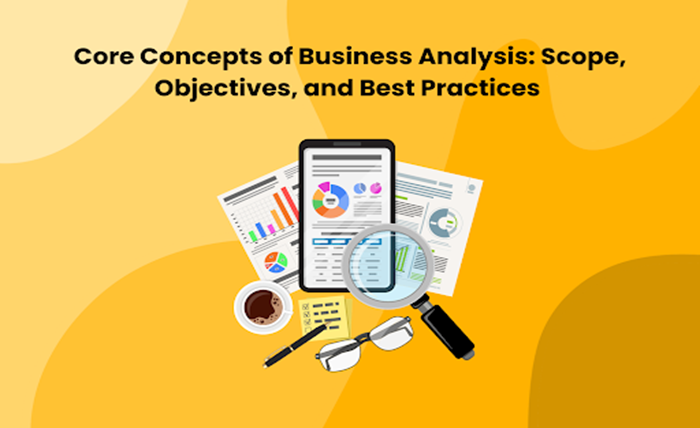In a world characterized by rapid changes, evolving consumer preferences, and growing concerns about sustainability and ethics, businesses are finding that having a clear sense of purpose is not just a noble ideal but a powerful driver of success. Purpose-driven businesses are redefining the way we perceive success, leadership, and the role of corporations in our society. This 2,000-word article explores the concept of purpose-driven businesses and how they lead in today’s world.
The Evolution of Business Purpose
Once upon a time, the primary purpose of businesses was straightforward: maximize profits. While profit remains a crucial element of any business, the evolution of corporate purpose now encompasses a broader and more profound vision. Businesses today are expected to do more than just generate revenue; they are expected to make a positive impact on the world.
A Paradigm Shift
The concept of purpose-driven business represents a paradigm shift. Instead of seeing profit as the sole end goal, these companies prioritize serving a higher purpose that goes beyond financial gain. This shift is driven by the changing expectations of both customers and employees, who now seek meaningful, authentic, and ethical engagements with businesses.
Stakeholder-Centric Approach
Purpose-driven businesses consider the needs and desires of all stakeholders, not just shareholders. They prioritize the well-being of customers, employees, suppliers, communities, and the environment. This shift is a reflection of the understanding that long-term financial success is intrinsically tied to the well-being of these stakeholders.
The Benefits of Purpose-Driven Businesses
Enhanced Employee Engagement
Employees are more likely to be motivated, loyal, and productive when they work for an organization that has a clear and meaningful purpose. Purpose-driven companies inspire their employees by giving them a sense of contributing to something bigger than themselves.
Stronger Brand Loyalty
Consumers increasingly want to support companies that share their values and contribute positively to society. Purpose-driven businesses build trust and brand loyalty more effectively than those that focus solely on profits. Customers are willing to pay a premium for products or services from companies that align with their values.
Attracting Top Talent
Purpose-driven businesses are more successful in attracting and retaining top talent. Today’s workforce is driven by a desire to make a meaningful impact. When a company’s purpose aligns with an individual’s values, it becomes a magnet for talented and passionate individuals.
Adaptability and Resilience
Companies with a clear sense of purpose tend to be more adaptable and resilient in the face of challenges. They can weather economic downturns, industry disruptions, and crises better because their purpose provides a guiding light in times of uncertainty.
Real-World Examples of Purpose-Driven Success
Patagonia
Outdoor clothing and gear company Patagonia is a prime example of a purpose-driven business. Their mission is to “build the best product, cause no unnecessary harm, use business to inspire and implement solutions to the environmental crisis.” Patagonia’s commitment to sustainability and environmental responsibility is woven into every aspect of their business, and they have been incredibly successful in terms of both impact and profit.
TOMS
TOMS, a shoe and eyewear company, operates on the principle of “One for One.” For every product they sell, they donate a pair of shoes or glasses to someone in need. This clear and simple purpose has not only made TOMS a successful business but also improved the lives of countless individuals around the world.
B Corps
The B Corp movement represents a collective of purpose-driven businesses certified to meet rigorous standards of social and environmental performance, accountability, and transparency. Companies like Ben & Jerry’s, The Body Shop, and Etsy are part of this movement, proving that purpose can drive both impact and profitability.
The Challenges and Criticisms
While the rise of purpose-driven businesses is undoubtedly a positive trend, it’s not without its challenges and criticisms. Some argue that the concept of purpose is being co-opted for marketing and that not all businesses are genuinely committed to their stated missions. Additionally, measuring the impact and success of purpose-driven initiatives can be challenging.
However, these challenges should not deter businesses from embracing a clear sense of purpose. The power of purpose is real, and when pursued authentically and with sincerity, it can lead to meaningful, positive change.
The Future of Business Leadership
The shift toward purpose-driven business is not a passing trend; it is the future of business leadership. In a world grappling with environmental issues, social inequality, and a desire for more ethical and responsible business practices, purpose-driven businesses are paving the way forward.
As more companies integrate purpose into their DNA, we can expect to see a more profound and lasting impact on various aspects of our society:
- Policy and Regulation: Purpose-driven businesses are likely to influence the creation of more sustainable and socially responsible policies and regulations.
- Industry Norms: These businesses are setting new industry norms and challenging established practices.
- A Cultural Shift: The growing emphasis on purpose is leading to a cultural shift in how we perceive business, success, and leadership.
Conclusion
The power of purpose is redefining the way businesses operate, compete, and succeed in today’s world. Purpose-driven businesses are proving that profit and positive impact are not mutually exclusive; in fact, they often go hand in hand. As we look to the future, it’s clear that the businesses that lead will be those that have a clear and unwavering commitment to a higher purpose, one that extends beyond financial gain and aims to make the world a better place for all stakeholders.




